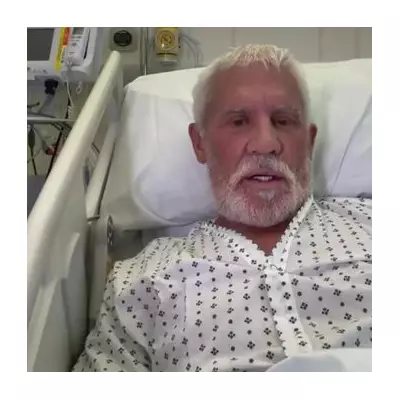
Britain is facing a silent cardiac crisis as heart attack and stroke cases among people in their 50s have surged dramatically. A leading cardiologist has stepped forward with an urgent warning about the subtle signs that could indicate you're unknowingly heading toward a cardiovascular emergency.
The Silent Epidemic Hitting Middle-Aged Brits
New data reveals a disturbing trend: otherwise healthy individuals in their prime are experiencing sudden cardiac events at alarming rates. What makes this particularly concerning is that many victims reported feeling perfectly fine until the moment disaster struck.
The Four Critical Warning Signs Most People Ignore
According to the cardiologist, these are the key indicators that your heart might be in trouble:
- Unexplained Fatigue - Not just ordinary tiredness, but profound exhaustion that doesn't improve with rest. This isn't about needing an extra coffee; it's your body signalling that your heart is struggling to pump blood efficiently.
- Subtle Breathing Changes - Finding yourself slightly breathless after activities that never used to wind you before. Climbing stairs, carrying groceries, or even walking briskly shouldn't leave you gasping for air.
- Chest Discomfort Variations - It's not always the dramatic Hollywood heart attack scene. Many experience pressure, tightness, or mild discomfort that comes and goes. This 'angina' is your heart's distress signal.
- Sleep Disturbances and Night-time Symptoms - Waking up short of breath or needing to prop yourself up with extra pillows could indicate fluid buildup in your lungs - a classic sign of heart failure.
Why Your 50s Are the Danger Zone
The cardiologist explains that decades of lifestyle choices often catch up with people during this critical decade. "The cumulative effect of stress, diet, and activity levels manifests in our 50s," he notes. "But the good news is that it's never too late to make changes that can save your life."
Take Action Before It's Too Late
Simple lifestyle modifications can dramatically reduce your risk. The expert emphasises regular cardiovascular exercise, blood pressure monitoring, and paying attention to these subtle warning signs. "Your body gives you signals long before a major event occurs," he stresses. "Learning to recognise them could be the difference between life and death."
If you're experiencing any of these symptoms, particularly if they're new or worsening, don't hesitate to consult your GP. Early intervention remains the most effective strategy against Britain's growing heart health crisis.





